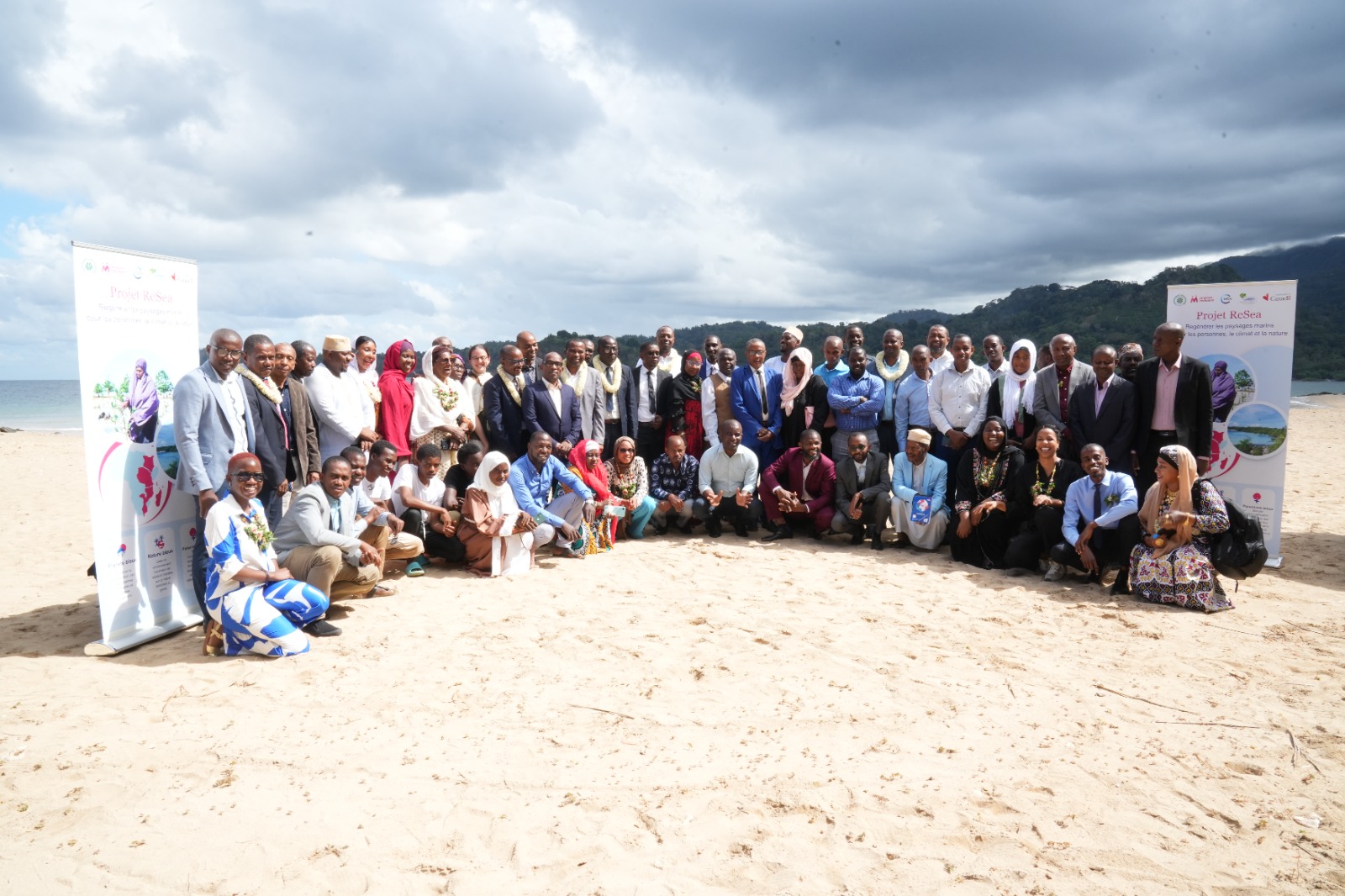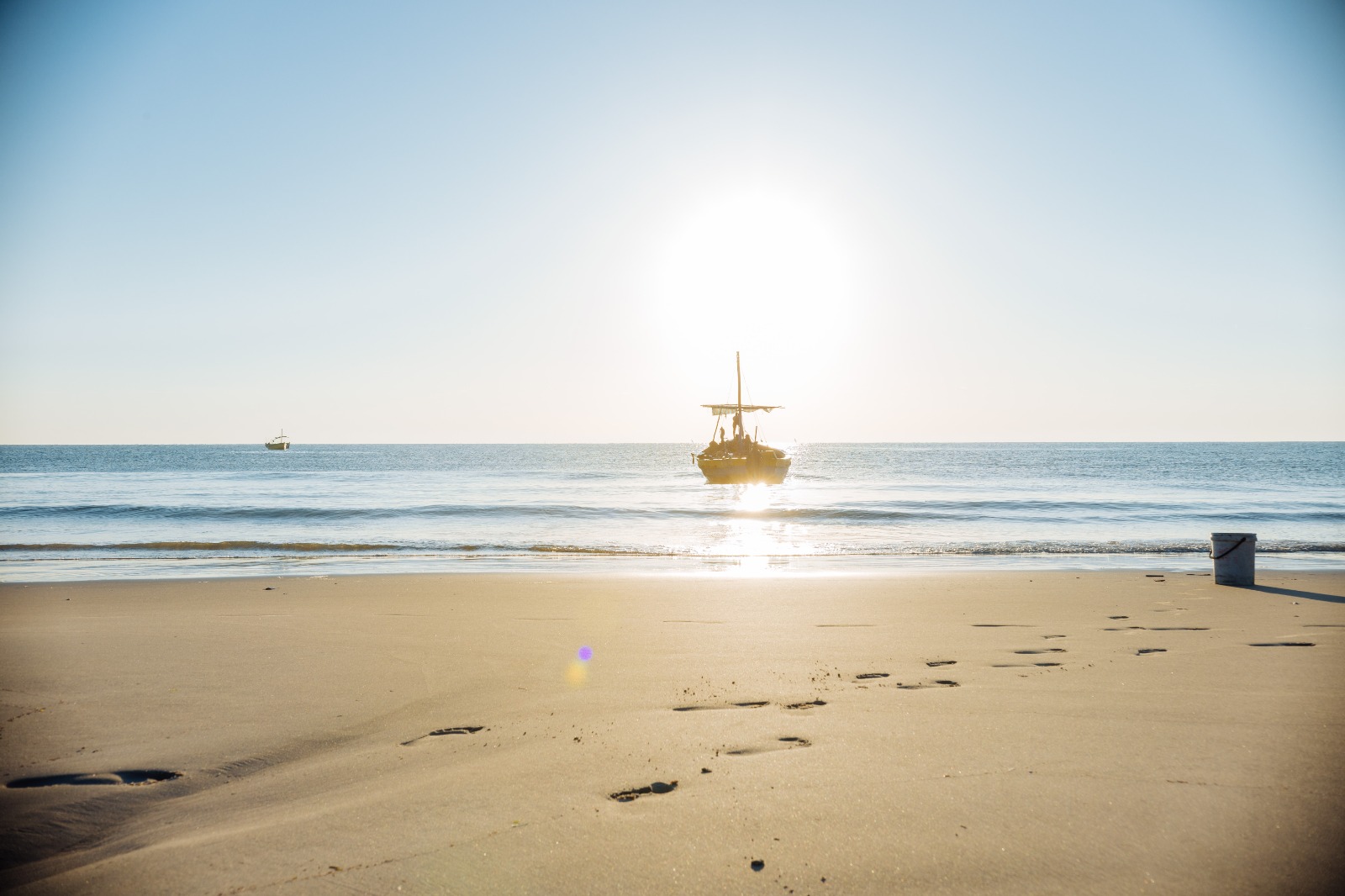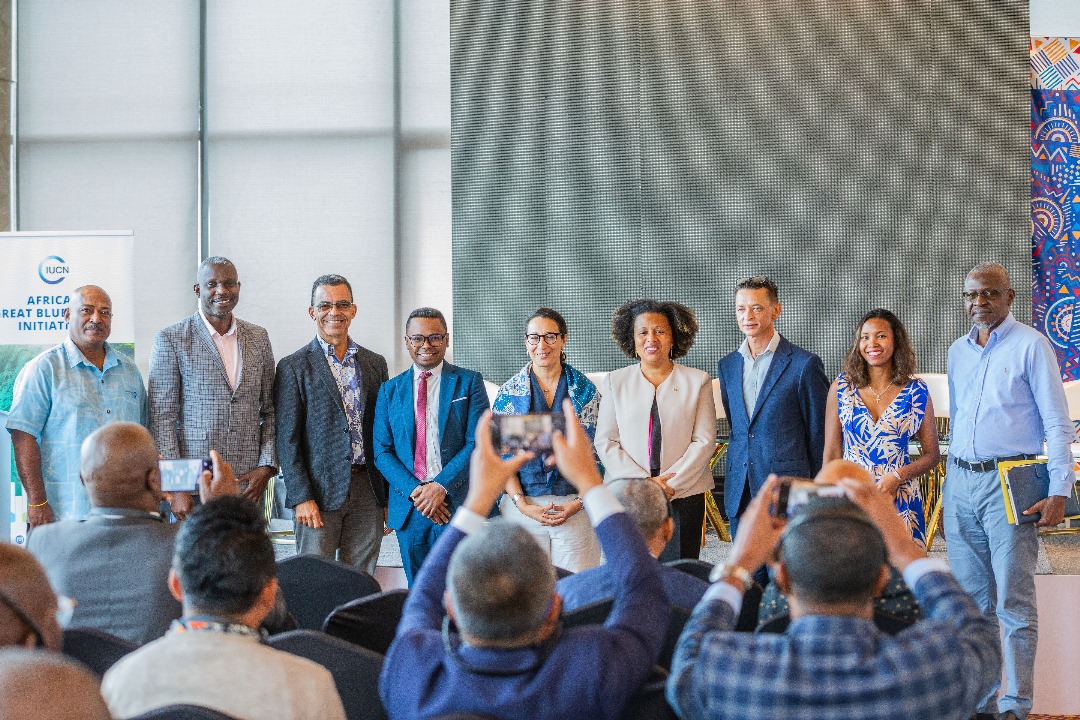Supporting Communication, Leadership, and Creative Thinking in Youth
Children’s human rights depend on a healthy ocean. One Ocean Hub supports the strengthening of youth communication, leadership, and creative thinking skills in the context of ocean degradation. The Hub empowers youth to take active roles in climate change conversations through skill development, access to platforms, and partner projects.
As we continue to witness children and young people tackle environmental challenges through their communication, leadership, and creative thinking, the One Ocean Hub continues to support the development of these essential skills. They are critical for us all to work in partnership to protect and fulfill our right to a clean, healthy, and sustainable ocean.
Children are among those most vulnerable to the effects of the loss of a healthy ocean - despite contributing the least to its degradation. The entirety of children’s human rights depends on a healthy ocean. Providing science-based solutions for a healthy ocean, whereby people and the planet flourish for past, present, and future generations, is at the core of the One Ocean Hub. With this ethos in heart, the Hub works in collaboration with various organisations and builds initiatives to protect and fulfill children's human right to a clean and healthy environment, as part of securing a healthy environment for all.
Hub researchers Dr. Mitchell Lennan (University of Aberdeen, UK) and Sophie Shields (University of Strathclyde, UK) and Hub Director Prof Elisa Morgera specialise in work with children and youth in the context of human rights, climate change, and ocean sustainability. Their research underpins that children’s human rights need to be at the heart of inclusive and integrated ocean governance. It also highlights the importance of children's voices, perspectives, and meaningful participation in current negotiations on climate, plastics, deep-seabed mining, and marine biodiversity of areas beyond national jurisdiction.
Communication, leadership, and creative thinking skills are essential to children and young people's meaningful participation. These skills support their confidence, readiness, and willingness to work in partnership with adults on tackling climate change through innovative and sustainable solutions.
Interconnected skills for tackling climate challenges:
Communication, leadership, and creative thinking skills are interconnected. By communicating their understanding of these complex issues, children and youth recognise their own role in these conversations and lead towards solutions, which they often express through creative means.
Through our various interactions with youth from Ghana, Namibia, and South Africa we have witnessed that children and youth indeed possess these skills already. The One Ocean Hub is left with a thrilling task to support them in developing these skills further in various ways which include inviting youth to participate in high-level discussions and collaborating with them in creative endeavours.
For example, at COP27 the Hub hosted an event at the Children and Youth Pavilion that focused on biodiversity finance and the ocean-climate-human rights nexus. Alutha Botha, a youth representative from South Africa, was one of the speakers. He expressed that his generation is ‘vastly outspoken’ and open about their opinions and concerns regarding climate change, as well as their readiness to take on an active role in communicating them. The event platformed young voices on climate mitigation and adaptation of nature-based solutions. With access to a platform at the heart of climate negotiations, children and youth can make their voices heard by decision-makers and develop their voices and skills as change-makers of the future.
Another example of support of the youth communication, leadership, and creative thinking skills nourishment is also the Hub’s partner team, Empatheatre, in South Africa. Empatheatre co-developed a theatre-based research project with 13 young artists (Mbazwana Creative Arts) in the northern KwaZulu-Natal region. The project, titled “Umkhosi Wenala” (Zulu for “Festival of Abundance”) created an innovative participatory decision-making space where rural youth can have a voice in the creation and management of MPAs that exclude cultural, spiritual, and other local perspectives, concerns, and questions.
We need to continue to support youth to nourish these key skills so that they can:
- Address the negative impacts of climate change such as tidal waves, severe flooding, melting of glaciers, sea level rise, and cyclones on children and young people.
- Take part in decision-making processes on climate change, and provide unique, innovative, creative, and valuable solutions to the climate crisis.
- Address the negative impacts of climate change on culture and nature, as the destruction of nature caused by climate change impacts youth’s emotional and cultural bonds with nature.



